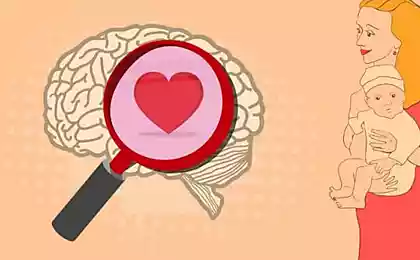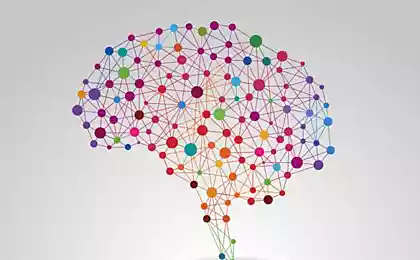158
11 Behaviours You Follow Because You Have No One to Rely on

Life is an unpredictable mentor. It teaches lessons that shape our worldview and behavior for years to come. One of the most fundamental lessons that many learn quite early is the realization that sometimes you can only rely on yourself. When the support of others is inconstant or absent, we adapt by developing specific behaviors that help us survive and function in the world. These models become an integral part of the personality, influencing decisions and relationships with others.
In this article, we will look at 11 characteristic behaviors that indicate that you are used to relying solely on yourself. You may recognize yourself in some of them, and this will be the first step towards a deeper self-understanding and, if necessary, transformation of these patterns.
1. Hyperindependence and difficulties with delegation
One of the most obvious signs of relying on yourself is a chronic inability to delegate tasks. You sincerely believe that it is better to do any work yourself, otherwise the result will not meet your standards or, even worse, the task will not be completed at all.
A study conducted by the American Psychological Association shows that people with traumatic experiences of unfulfilled expectations from others are 2.5 times more likely to show signs of pathological independence in professional and personal spheres.
Practical advice:
Start the delegation small. Choose a task of low importance and entrust it to someone from the environment. Even if the outcome isn’t perfect, see it as trust training, not as confirmation of your concerns.
2. Emotional restraint and blocking vulnerability
When a person has no one to rely on, emotional vulnerability is perceived as a potential danger. You carefully control emotions, rarely allow yourself to cry in front of others, and avoid situations that require emotional openness.
This is a kind of defense mechanism: if no one sees your pain or weakness, no one will be able to use it against you, or, just as important, no one will be disappointed in you because of your “weakness.”

The paradox is that emotional restraint, initially aimed at self-defense, can over time become an obstacle to the formation of deep interpersonal connections that could potentially become a source of support.
Practical advice:
Practice controlled vulnerability. Start with a trusted person or specialist, gradually revealing your true feelings. Keep an emotional diary if direct communication seems too difficult at first.
3. Excessive preparation for worst-case scenarios
People with no one to rely on often develop an almost intuitive ability to anticipate potential problems and prepare for them in advance. This is reflected in the continuous risk analysis, the presence of a “plan B” and even a “plan B”, and the preference to be safe rather than underestimate the possible difficulties.
According to research in stress psychology, this approach can be adaptive in the short term, avoiding major shocks. However, prolonged exposure to disaster waiting mode depletes psychological resources and can lead to chronic anxiety.
Practical advice:
Set reasonable boundaries to prepare for negative scenarios. Ask yourself, “How likely is this negative outcome?” and “Will I be able to cope with the situation if it does occur, even without prior detailed preparation?”
4. Perfectionism as a Way of Protection
Perfectionism in people who rely on themselves often has deep roots. It’s not just a pursuit of excellence for high achievement. It’s a survival strategy based on the belief, “If I’m perfect, nothing can go wrong, and I won’t need anyone’s help.”
You set unattainable high standards for yourself, carefully check your work, experience great discomfort at the slightest mistakes and react extremely negatively to criticism, even if it is constructive.
Practical advice:
Practice conscious mediocrity in insignificant tasks. Intentionally do something “just good enough” rather than perfect. Note your feelings before, during and after this experiment. Over time, you may find that the world does not collapse from imperfection.
5. Difficulty accepting help and gratitude
When you’ve had to deal with things on your own for years, a simple “yes” in response to an offer of help can cause physical discomfort. You perceive accepting help as a sign of your own failure or weakness.
Neurobiological studies show an interesting pattern: people who chronically reject the support of others, there is increased activity in areas of the brain associated with perception of threat, when receiving offers of help.

Practical advice:
Start practicing taking a little help in everyday situations. When someone offers to help deliver packages or give you a ride, try saying “yes” instead of the usual “thank you, I can handle it.” Then note how it affects your sense of self and relationship with that person.
6. Constant vigilance in relationships
People who rely only on themselves are often in a state of heightened vigilance in relationships. You’re constantly looking for signs that the other person might let you down, analyzing every word and action you say for potential deception or betrayal.
This hypervigilance is a natural consequence of repeated frustrations and lack of reliable support in the past. However, it creates a significant emotional burden and can become a self-fulfilling prophecy, alienating people who could become reliable partners or friends.
Practical advice:
Keep track of when your vigilance is activated and ask yourself, “Is my reaction based on the current situation or past experience?” Practice grounding techniques to return to the present moment if you realize you are reacting to the ghosts of the past.
7. Workaholism and problems with rest
When you know that you can count only on yourself, work becomes not just a way of self-realization, but also a guarantee of safety and independence. This often results in you working more than you need, feeling guilty while resting, and linking your value as a person to productivity.
Statistics show that people with high levels of independence have a 35% higher risk of professional burnout due to the difficulty in establishing a healthy balance between work and rest.
Practical advice:
Start by planning short recovery periods. Put 15-30 minutes daily for non-productivity activities. Gradually increase this time by noting the positive impact of rest on your overall efficiency and well-being.
8. Excessive financial precaution
People who are used to relying only on themselves often show increased caution in financial matters. You may have multiple airbags, plan your budget carefully, and feel uncomfortable with large spending, even if it is fully justified.
While financial responsibility is undoubtedly a positive trait, oversaving can lead to the fact that you deprive yourself of many of the joys and opportunities that require financial investment.
Practical advice:
Create in your budget a category of “planned irrational expenses” – funds that you allow yourself to spend on something pleasant without subsequent self-blame. Start with a small amount and gradually increase it, noting how your attitude towards finance changes.
9. Difficulties in Building Deep Relationships
When you’re used to relying solely on yourself, deep emotional connections can seem not only unnecessary but potentially dangerous. You maintain a certain emotional distance, make friendships easier than close relationships, and can instantly distance yourself at the first sign of potential disappointment.
In doing so, you may genuinely desire intimacy, but find that your defense mechanisms are activated automatically as the relationship begins to deepen.
Practical advice:
Practice gradually deepening the relationship. Identify someone in your environment with whom you feel relatively comfortable, and consciously share more and more personal thoughts and feelings with them, tracking your reactions to the process.
10. Habit of controlling everything
Control becomes a natural strategy for someone who believes that if you don’t control the situation yourself, everything will go wrong. This is manifested in the desire to plan every minute, rejection of surprises and severe discomfort in situations of uncertainty.
Studies of cognitive processes show that excessive control paradoxically does not reduce, but increases the level of anxiety, creating a vicious circle: the more control you have, the greater the anxiety from the thought of losing control.
Practical advice:
Regularly practice controlled unpredictability situations. For example, go to a restaurant and ask the waiter to bring a dish of their choice, or let a friend plan your weekend together without your intervention.
11. Increased self-criticism
When you take full responsibility for your life, any failure or mistake is perceived with increased criticality. You can be an objectively successful person, but focus on your shortcomings and failures.
Your inner critic works in hyperactivity mode, turning every little mistake into evidence of your incompetence or lack of effort.
Practical advice:
Practice self-compassion. When you notice that the inner critic is activating, ask yourself, “What would I say to a close friend in such a situation?” and send these words of support to yourself. Keep a success journal, recording even small achievements to create a more balanced picture of self-perception.
The path to healthy independence
Understanding these behaviors is the first and most important step to transforming them. It is important to understand that the goal is not to completely abandon independence – this quality deserves respect and development. Rather, it is a shift from forced, protective self-sufficiency to conscious self-sufficiency that does not preclude trusting others and accepting help when it is reasonable and necessary.
At the heart of many of these behaviors is a fundamental belief: “I can only rely on myself.” This belief can be formed on the basis of real experience and at certain periods of life to be absolutely justified. However, with a change in life circumstances, it may be necessary to reconsider it and replace it with a more flexible one: “I can rely on myself, but I can also selectively trust others when there is reason to do so.”
- Start with small steps, gradually expanding your comfort zone.
- Recognize that certain levels of uncertainty and lack of control are a natural part of life.
- Remember that vulnerability is not a sign of weakness, but a manifestation of courage and a path to deeper connections with others.
- Seek professional support if working independently with deeply rooted patterns seems too difficult.
Glossary of terms
Hyperindependence is an excessive, pathological form of independence in which a person refuses help even in situations where it would be appropriate and useful.
Controlled vulnerability is the conscious practice of emotional disclosure in a safe environment to develop the ability to express one’s feelings and needs.
Conscious mediocrity is the deliberate execution of a task at the level of “good enough” instead of “perfect” as a therapeutic practice to combat perfectionism.
Grounding techniques are practices aimed at regaining attention in the present moment and reducing anxiety (for example, the 5-4-3-2-1 method, in which a person consistently notes 5 things he sees, 4 things he feels physically, etc.).























